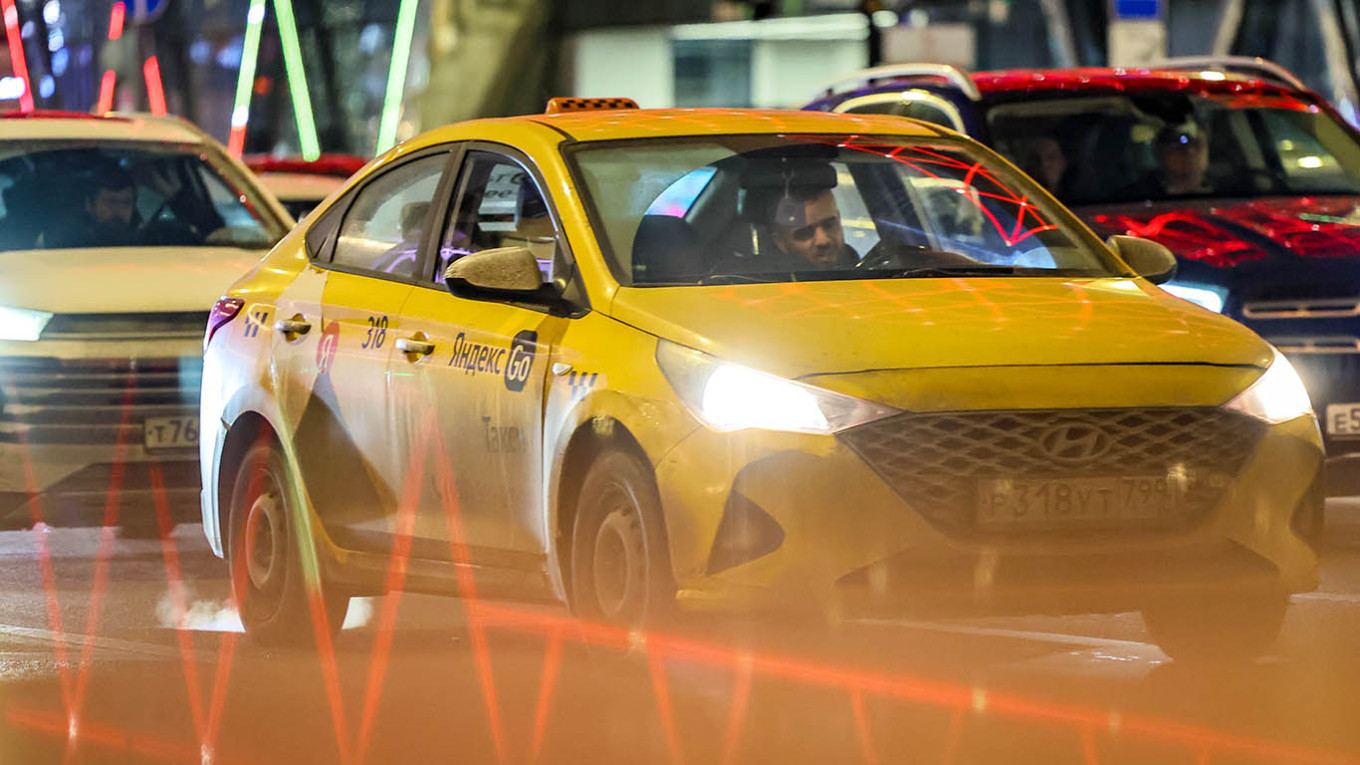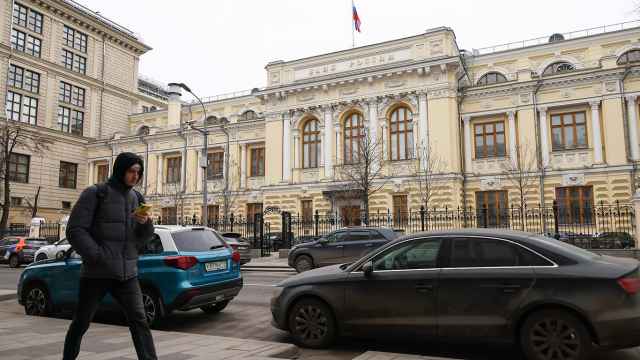Luxury taxi service Wheely vanished from Moscow’s streets this month after a court ordered its blocking for refusing to share passenger data with the security services.
Days later, St. Petersburg officials finalized a ban on migrant taxi drivers that will eliminate half the city’s workforce. Meanwhile, the country’s leading ride-hailing app Yandex warned customers to brace for surge pricing as students returned to university.
These are not isolated incidents, but symptoms of a broader unraveling of Russia’s taxi industry.
A perfect storm
Once a highly competitive market, Russia’s taxi sector is now sliding into a state-controlled monopoly marked by soaring prices, shrinking services and systematic discrimination against foreign workers.
Prices are already up 22% in 2025 compared with last year, with some popular routes increasing by 70%. Industry forecasts suggest fares could rise another 40-60% once new vehicle localization rules take effect in March 2026.
The removal of migrant drivers has accelerated the crisis. Spurred by a xenophobic backlash after the Crocus City Hall terrorist attack in March 2024, more than 30 Russian regions have barred foreign nationals from driving taxis.
“We're witnessing the slow-motion collapse of an entire industry," said Daniil Kurashev, COO of Citimobil, a major taxi operator.
Across Russia, many taxi parks have already closed or are on the brink of closure, with vehicles sitting idle and generating losses.
In Moscow, residents increasingly share stories of waiting over an hour for a ride or paying more than their hourly wages for a short trip.

Wheely's demise
The shuttering of Wheely underscores the Kremlin’s determination to eliminate any service that resists state surveillance.
Founded by Anton Chirkunov, son of former Perm Governor Oleg Chirkunov, Wheely marketed privacy protection as a core service feature. It served Moscow's elite with Mercedes-Benz vehicles and professional chauffeurs, attracting diplomats, business executives and wealthy Russians who valued discretion.
But its attempt to balance European data protection rules with Russian security demands proved impossible.
According to court documents, Wheely was blocked for refusing to connect to Moscow’s Unified Regional Navigation Information System (ERNIS).
The system — which every other major operator has complied with — requires operators to transmit drivers’ passport data, real-time vehicle locations, passenger details for every trip and daily operational reports to security agencies.
“The irony is striking,” noted one industry analyst who requested anonymity to speak freely. “They're blocking a service used by the wealthy elite in the name of fighting terrorism, when these are the least likely people to pose security threats. This is about control, not safety.”
‘You are a slave’
The mass exodus of migrant workers is transforming Russia's taxi landscape. Industry estimates suggest migrants comprise 60-70% of economy-class taxi drivers in major cities and about half of all taxi drivers nationwide, a share that is set to fall significantly thanks to the regional bans on foreign taxi drivers.
Officials say these bans aim to reduce illegal employment, improve the quality and safety of services and open up more jobs for local residents.
Experts say that the measures are not only discriminatory but economically self-defeating, given Russia’s labor shortage of 2.4 million workers.
“Not a single study has shown these bans improve safety or benefit the labor market,” demographer Olga Chudnovskikh said. “Instead, we're seeing the emergence of a shadow economy where migrants continue working under different job classifications or in completely illegal arrangements.”
Ilham, a Tajik driver who invested his savings into a second vehicle to meet new requirements, now faces deportation.
"I followed every rule, paid every tax, never had one complaint in five years. Now they tell me I cannot work because of my passport,” he said.
For Central Asian taxi drivers, the crisis extends far beyond employment bans into routine harassment and violence. In one video filmed in Moscow in August, a passenger was seen telling his Uzbek driver: “You are a slave, a slave of Russians.”
“Before Crocus, maybe one in 10 passengers would make comments about my accent or appearance," said Rustam, a Tajik driver who worked in St. Petersburg for five years until the migrant ban. "After Crocus, it was every other passenger. Some would cancel the ride when they saw I wasn't Russian. Others would spend the entire trip telling me to 'go home’.”
The treatment of Central Asian workers has strained Russia's ties with former Soviet republics, whose economies often depend on remittances from their citizens working abroad. Uzbekistan has lodged formal protests following harassment incidents, while Kyrgyzstan has issued travel advisories warning of rising discrimination in Russia.
‘Buy Russian’ means ‘Pay triple’
President Vladimir Putin in May signed legislation requiring all taxis to be manufactured in Russia or meet strict domestic content quotas starting in 2026.
The rules effectively limit operators to a small pool of Ladas, Moskvich models, a few Russian-made electric cars and certain Chinese vehicles assembled locally. That will replace the Korean, Japanese and European cars that dominate taxi fleets today.
The Analytical Center at the Russian Government warns that over 500,000 drivers may leave the industry rather than purchase more expensive, lower-quality domestic vehicles. Still, Lada maker AvtoVAZ stands to gain a captive market of 40,000-60,000 vehicles annually from the policy.
“We're looking at replacing 80% of our fleet within the next few years," said Dmitry, who manages a mid-sized Moscow taxi park. "A Lada Granta costs twice what a used Korean car did, but passengers won't pay premium prices for economy service. The math simply doesn't work.”

While central Russia must comply with the new law by 2026, regions like Siberia and the Far East have until 2028 or 2030. These staggered deadlines acknowledge what officials won't say publicly: domestic production cannot meet demand, and forcing immediate compliance would collapse transportation in Russia's periphery.
Social media users have responded with dark humor, joking about new service tiers like “Discomfort+” — “a domestic car at an inflated price” — or suggesting that horse-drawn carriages might soon become one of Yandex’s taxi options.
Price explosion
With 130,000 unfilled driver positions nationwide, ride-hailing apps rely heavily on algorithmic surge pricing that can double or triple fares within minutes.
Yandex, which controls 60% of the Moscow market, leverages its dominance through aggressive pricing algorithms that maximize revenue over service availability. The company's 2025 Q2 earnings showed taxi division revenue up 43% despite decreased trip volume — evidence, critics say, of monopoly power.
“The algorithms are designed to extract maximum revenue, not serve passengers,” explained Anton Maksimov, a part-time driver who runs the Taxi Ombudsman Telegram channel. “When multiple people request rides from the same location, prices instantly double or triple. It's pure greed wrapped in technology.”
At the same time, financing new vehicles has become nearly impossible. High interest rates have driven down new taxi registrations by 50% this year.
Compliance with data-sharing and certification rules adds thousands of rubles in further monthly costs per vehicle.
The return of the '90s
Overregulation, migrant bans and price gouging have led to a revival of underground taxi networks.
Dozens of Telegram groups now connect riders directly with drivers, essentially recreating the informal taxi networks that dominated the 1990s. These networks offer prices 30-50% below official services while providing drivers better earnings by eliminating platform commissions.
“It's like we're going backwards,” observed Maria, a Moscow resident who regularly uses these taxi groups. “You message a group, negotiate a price directly with a driver, pay cash. No apps, no surveillance, no surge pricing. Just like catching a bombila [illegal taxi] in the '90s, except organized through smartphones.”
Strikes have spread in smaller cities, where drivers share pay slips showing monthly earnings of just 30,000-50,000 rubles ($360-600) after expenses.
Viral videos of drivers denouncing government policies often gain traction online before being swiftly deleted by authorities.
A metaphor for Russia
The taxi industry’s decline has become a parable of modern Russia: a system where control trumps efficiency, xenophobia trumps economic sense and monopolies replace competition.
The imagery is striking: empty taxi parks with idle vehicles, exhausted drivers working poverty wages, passengers unable to afford basic transportation and underground networks recreating Soviet-era informal economies.
As one popular Moscow meme put it: “Moscow Never Sleeps — because nobody can afford the taxi home.”
A Message from The Moscow Times:
Dear readers,
We are facing unprecedented challenges. Russia's Prosecutor General's Office has designated The Moscow Times as an "undesirable" organization, criminalizing our work and putting our staff at risk of prosecution. This follows our earlier unjust labeling as a "foreign agent."
These actions are direct attempts to silence independent journalism in Russia. The authorities claim our work "discredits the decisions of the Russian leadership." We see things differently: we strive to provide accurate, unbiased reporting on Russia.
We, the journalists of The Moscow Times, refuse to be silenced. But to continue our work, we need your help.
Your support, no matter how small, makes a world of difference. If you can, please support us monthly starting from just $2. It's quick to set up, and every contribution makes a significant impact.
By supporting The Moscow Times, you're defending open, independent journalism in the face of repression. Thank you for standing with us.
Remind me later.






